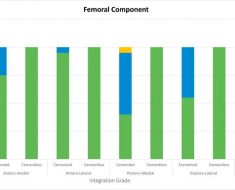Some of the medications in the study can be purchased over the counter, including PPIs and Ibuprofen.
New study results released by the University of Illinois indicate that one in three adults in the U.S. is unknowingly taking prescriptions that can potentially increase their risk of depression and suicides, reports USA Today. The researchers presented their findings after analyzing the medication use patterns of 26,192 participants.
According to the study, the common prescription medications prescribed don’t have anything to do with depression, so that is one reason that patients, and even their health care providers, don’t know about the risk, according to University of Illinois campus online publication, UIC Today.
At the heart of the study were over 200 commonly prescribed prescription medications. Some of them are even available over the counter such as proton pump inhibitors (PPIs) that treat chronic acid reflux and the painkiller Ibuprofen. Others on the list included those available with a prescription and included beta blockers, anticonvulsants, ACE inhibitors, and hormonal birth control.
The adults took part in the National Health and Nutrition Examination Survey in a period that spanned from 2005 to 2014. The survey was unique in the fact that it combined physical examinations and interviews. What’s more, the study was the first of its kind to highlight that these type of drugs were often used concurrently. This type of concurrent use is termed polypharmacy, and it is linked to a greater likelihood of feelings of depression. It is also more prevalent among the elderly or those living alone.
What’s more, about 15 percent of adults with polypharmacy in the prescription medication study experienced depression. On the other hand, participants not taking the drugs came in at only 5 percent.

Dima Qato, assistant professor of pharmacy systems, outcomes, and policy in the UIC College of Pharmacy had this to say about the prescription medication study’s findings.
“The take away message of this study is that polypharmacy can lead to depressive symptoms and that patients and health care providers need to be aware of the risk of depression that comes with all kinds of common prescription drugs — many of which are also available over the counter.
“Many may be surprised to learn that their medications, despite having nothing to do with mood or anxiety or any other condition normally associated with depression, can increase their risk of experiencing depressive symptoms, and may lead to a depression diagnosis.”
The participants in the prescription medication survey listed all of the meds they were using at the time, and they also answered questions during depression screening, known as the Patient Health Questionnaire, or PHQ-9. The PHQ-9 is used to ask the study participants about appetite, mood, and their sleep habits.
The prescription medication study was published on June 12 in the Journal of the American Medical Association (JAMA).
Source: Read Full Article





